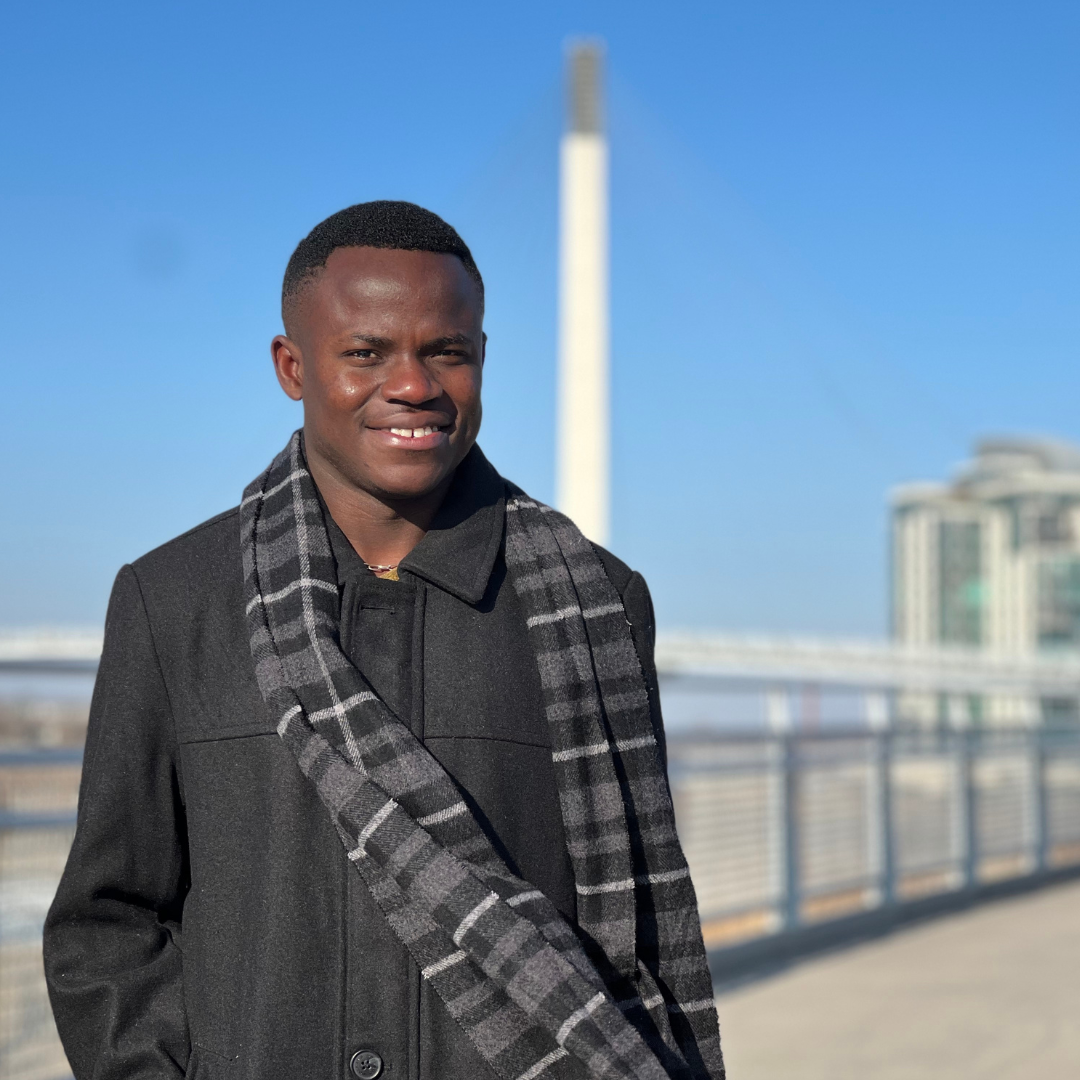Meet Philip Salu of the North Dakota State University! The Ghanaian citizen is a Ph.D. Candidate and member of Prof. Katie Reindl’s lab. He attended the 2022 course on Metabolomics last month; his first in-person course since the pandemic that he found “frankly refreshing”.
Tell us about your research.
The focus of my research is on drug-resistance development in pancreatic cancer. Our main goal is to better understand the underlying mechanisms using appropriately developed cell line models.
How did you decide to focus on this area/project?
Drug resistance in cancers is a complex phenomenon that is commonly talked about, yet the root cause is not fully understood. There were earlier attempts in my lab at developing specific drug resistance models and so it was a natural thing for me to pick up this project since there is still a lot of discovery to be made.
What and/or who is the inspiration behind your scientific journey?
My scientific journey began with the desire to work in a field where a lot of exciting discoveries have been made knowing that there are even greater prospects ahead. This is of course fueled by my curiosity and open-minded attitude to solving problems.
What impact do you hope to make through your work?
I hope to contribute to scientific knowledge regarding the mechanism of drug resistance development in pancreatic cancer. The disease condition has an abysmal survival rate, therefore, any knowledge that contributes to increased disease susceptibility to therapy will have significant implications for patient survival.
Where do you see yourself in five years?
Soon, I see myself starting a post-doctoral training to further understand the metabolic needs of cancers and their resistant phenotypes. I would also like to work in a lab that is into biomarker discovery before starting independent research of my own.
What do you love most about being a researcher?
Being a researcher gives me the ability to be open-minded and inquisitive. I derive joy from the successes and channel the failures into an energy of motivation.
What drew you to apply to this course?
I have always wanted to determine changes in metabolic signatures of the cells I work with. So, when I found this course on the CSHL website, I knew I had to take it.
What is your key takeaway from the Course; and how do you plan to apply it to your work?
The field is very diverse and what you do including procedures and equipment are very relevant in obtaining accurate data. I have come to appreciate the importance in finding ways to use instruments that are available to me in answering basic questions. Also, this course has given me insight into things I should consider when preparing my samples and running them to get consistent data that truly answers my questions.
What feedback or advice would you share with someone considering to participate in this course?
I will highly recommend this course to anyone interested. But more importantly, make connections, friends and share knowledge. The prospects are just boundless.
What’s the most memorable thing that happened during the Course?
The most memorable moment of the course for me was our “Beeromics” experiment. How we sampled different beer brands each night and the effort it took our instructors to run about 200 samples while making sure all other student projects are taken care of amidst instrument breakdowns.
Is this your first in-person course/workshop since the pandemic? If so, any thoughts you’d like to share?
Yes, this is my first in-person course since the pandemic and it was frankly refreshing to have face-to-face interactions again. It's very interesting how in-person meetings are more fruitful compared to online interactions.
What do you like most about your time at CSHL?
My favorite thing was our sailing trip on the 138-year-old Oyster Sloop, Christeen. I really did enjoy how the vessel’s history was told by one of the captains.
Philip received a scholarship from Regeneron to cover a portion of his course tuition. On behalf of Philip, thank you to Regeneron for supporting and enabling our young scientists to attend a CSHL course where they expand their skills, knowledge, and network.
Thank you to Philip for being this week's featured visitor. To meet other featured scientists - and discover the wide range of science that takes part in a CSHL meeting or course - go here.
Image provided by Philip Salu

